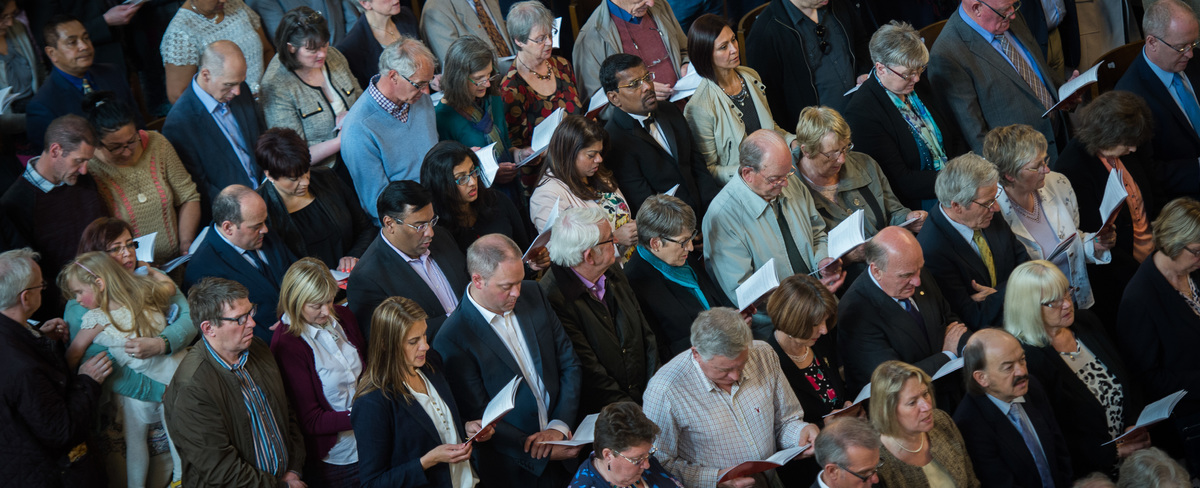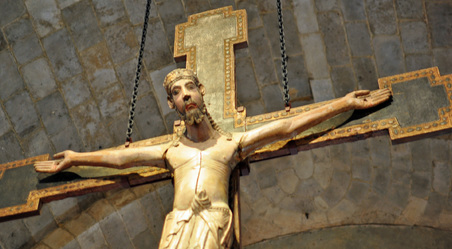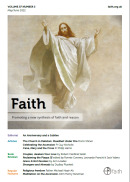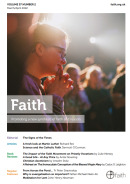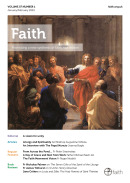Featured
Truth, Freedom and Religion
It’s a free country” we used to say, when someone wanted to do something slightly ridiculous. Go ahead, walk around the streets with a placard saying
“The End is Nigh”, eat mustard on your jam sandwiches or join the Mormons and denounce tea-drinking – it’s a free country.
Is it? We can still do some ridiculous things if we like. But increasingly, Christians seem to be treated harshly by public authorities – even criminalised – for upholding in public some aspect of Christian morality, specifically sexual morality. The idea of a creative tension between freedom of speech and the needs of the community, of a shared desire to serve the common good, is under attack.
Are we free? We need to claim our freedom and make use of it. The Christian voice is needed in Britain. The great St John Paul said that religious freedom is “the basis of all other freedoms and is inseparably tied to them by reason of that very dignity which is the human person” (letter to the Secretary General of the United Nations, 1978).
Inspiring the Young to Lifelong Marriage
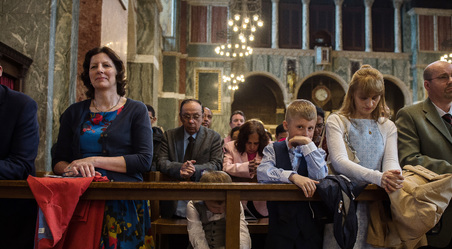
Since 2013 the Diocese of Westminster has been working with the Explore educational charity to provide a “remote marriage preparation” experience in the diocese’s high schools and parishes. In December 2014, with the help of a grant from the Celebrating Family Fund from the Catholic Bishops’ Conference, a Local Development Officer for the project was appointed. Four parish youth/Confirmation groups and almost a dozen schools have taken par t in sessions during which more than 1500 young people have had a chance to dialogue with married couples about what makes their marriage work. The feedback from these “workshops” is over whelmingly positive. One student said: “It gave me a bet ter understanding of how marriage works.” Another said, “ You can overcome any thing in a relationship if you truly love each other and want to try.”
Is Allah the God of the Bible?
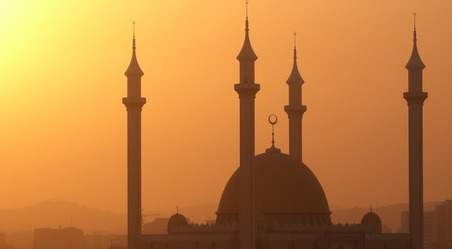
The Second Vatican Council’s declaration on relations with non-Christian religions (Nostra aetate) is shot through with a desire to be as positive as it can be about them: this tendenc y was both noted and complemented by Dominus Iesus of 2000 which emphasises the uniqueness and sufficiency of the Revelation in Jesus Christ.
Regarding Muslims, Nostra aetate tells us that “they worship God, who is one, living and subsistent, merciful and almighty, the Creator of heaven and earth.” Interestingly, and helpfully, it does not locate the source of such belief in the Qur’an or the Sunnah of the Prophet of Islam. So how have Muslims come by such belief?
The Human Mind, Material Things and Argument
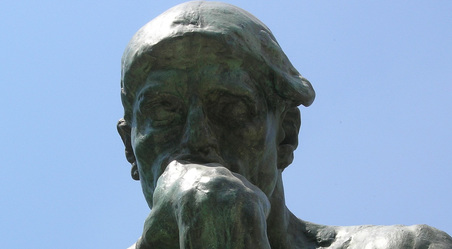
One of the most interesting areas of modern philosophy is the philosophy of the mind. This is because it brings the philosopher down from his (supposed) ivor y tower and into the thick of the bat tle raging bet ween the theist and the modern atheist. This rests upon the fact that if it is proved that the mind is immaterial, this implies its abilit y to live on af ter death. Now, while this does not directly demonstrate the existence of God, it does open up a whole world beyond the material universe and so it makes the average atheist refreshingly ner vous that his own position is nothing like as secure as he, misguidedly, tends to think it is.
Gravitational Waves
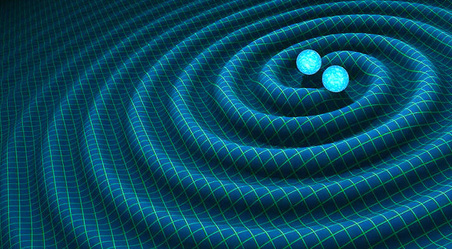
At the Easter Vigil after the first reading from Genesis chapter 1, describing the creation of the universe by God, the prayer that follows says: “Almighty ever-living God, who are wonderful in the ordering of all your works, may those you have redeemed understand that there exists nothing more marvellous than the world’s creation in the beginning except that, at the end of the ages, Christ our Passover has been sacrificed.”
The Father of the Big Bang Theory
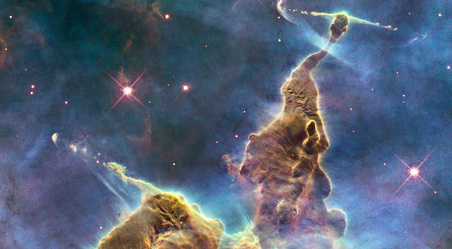
Dominique Lambert explained first some of the background to Lemaître’s work: In 1927, Mgr Lemaître was the first scientist to explain what we call today the “Hubble law”, stating that the speeds of the far galaxies are proportional to their distances, in all directions of the universe. He explained that using a solution of Einstein’s equations of General Relativity corresponding to an expanding universe. In 1931, Lemaître introduced the “Primeval Atom” cosmology which can be considered as the prehistory of the Big Bang cosmology. In the latter, the universe begins by an initial singularity and its expansion is governed by gravitational attraction but also by a repulsion (described by the famous cosmological constant). This force is responsible for the fact that now the universe is accelerating.
Holloway on the Role of the Catholic School
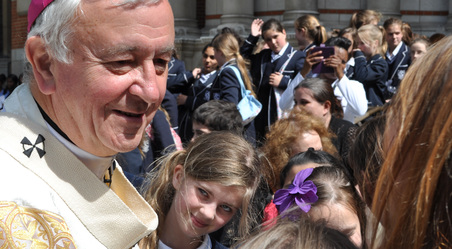
Let it be clear in all our teaching and preaching about the Catholic School, that we are not asking for them to “keep the children safe” from other faiths, nor to be sure that they will always hear a Catholic rejoinder in the history class. We begin with the home. Education begins there, education in the knowledge and love of God, and his full revealing of himself in Jesus Christ. The home, because it is the focus of values, human and divine, is also the first and primary seat of the right to educate. This is the primary right touched upon by the Catholic Teachers’ leaflet which states basic well-worn Catholic doctrine.
Book Reviews
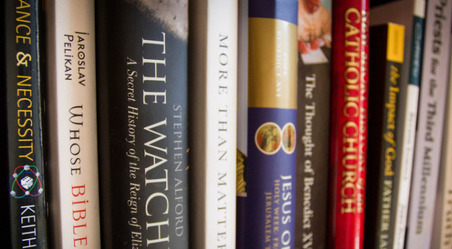
One of the Facebook relationship-status options offered to users is the now-famous phrase “it’s complicated”, and in many ways that could sum up the relationship between faith and science. Many would like to characterise the interplay between religion and science in all sorts of simplistic ways, but the thesis of Science and Religion is that to do so would be utterly false. The blurb on the back cover of the volume puts it succinctly: “science and religion have been mutually relevant in so rich a variety of ways that no simple generalisations are possible.” It is to be noted that this is not a new publication, but a newly published edition of a 1991 book.
-
Truth, Freedom and Religion
Editorial FAITH MAGAZINE May - June 2016
Truth, Freedom and Religion
"It’s a free country” we used to say, when someone wanted to do something slightly ridiculous. Go ahead, walk around the streets with a placard saying “The End is Nigh”, eat mustard on your jam sandwiches or join the Mormons and denounce tea-drinking – it’s a free country.
Is it? We can still do some ridiculous things if we like. But increasingly, Christians seem to be treated harshly by public authorities – even criminalised – for upholding in public some aspect of Christian morality, specifically sexual morality. The idea of a creative tension between freedom of speech and the needs of the community, of a shared desire to serve the common good, is under attack.
Are we free? We need to claim our freedom and make use of it. The Christian voice is needed in Britain. The great St John Paul said that religious freedom is “the basis of all other freedoms and is inseparably tied to them by reason of that very dignity which is the human person” (letter to the Secretary General of the United Nations, 1978).
Tradition
Speaking in Westminster Hall in 2010, Pope Benedict XVI spoke movingly about Britain’s heritage of constitutional government: “Your common law tradition serves as the basis of legal systems in many parts of the world, and your particular vision of the respective remains an inspiration to many across the globe”.
The Church is interested in all that concerns human life and human flourishing. Freedom, justice, the rule of law, family life, good stewardship of natural resources, care for the poor and vulnerable, are not abstract concepts or the stuff of merely political discussions: they are bound up with each Christian’s life and eternal destiny.
The Church is concerned with truth – the truth about God and about man. And as St John Paul often repeated: there can be no true freedom without truth.
The truth cannot be, and does not need to be, imposed. It “imposes itself, quietly and with force” (Gaudium et spes). Truth is inexorably bound to freedom. Living in the truth – individually and as a community – establishes men and women in dignity. And it is not necessary to blunder around in the dark wondering how to find out about truth, nor do we need to follow the example of the ruler who asked, with a mixture of cynicism and real sadness, “What is truth?”
Benedict at Westminster
At Westminster Pope Benedict highlighted the specific contribution made by St Thomas More – “the king’s good servant, but God’s first”. What does that mean for men and women today: what is the place of religious belief in the political process?
“This country’s parliamentary tradition owes much to the national instinct for moderation, to the desire to achieve a genuine balance between the legitimate claims of government and the rights of those subject to it. While decisive steps have been taken at several points in your history to place limits on the exercise of power, the nation’s political institutions have been able to evolve with a remarkable degree of stability.
“In the process, Britain has emerged as a pluralist democracy which places great value on freedom of speech, freedom of political affiliation and respect for the rule of law, with a strong sense of the individual’s rights and duties, and of the equality of all citizens before the law. While couched in different language, Catholic social teaching has much in common with this approach, in its overriding concern to safeguard the unique dignity of every human person, created in the image and likeness of God, and in its emphasis on the duty of civil authority to foster the common good.
“And yet the fundamental questions at stake in Thomas More’s trial continue to present themselves in ever-changing terms as new social conditions emerge. Each generation, as it seeks to advance the common good, must ask anew: what are the requirements that governments may reasonably impose upon citizens, and how far do they extend? By appeal to what authority can moral dilemmas be resolved? These questions take us directly to the ethical foundations of civil discourse. If the moral principles underpinning the democratic process are themselves determined by nothing more solid than social consensus, then the fragility of the process becomes all too evident – herein lies the real challenge for democracy.”
The Pope emphasised that the Church did not seek to impose the Catholic faith in any formal sense into the political and constitutional arrangements of the nation. It is in the very nature of Christianity that it functions at every level and in every aspect of life: it permeates everything.
Faith and reason
“The Catholic tradition maintains that the objective norms governing right action are accessible to reason, prescinding from the content of revelation. According to this understanding, the role of religion in political debate is not so much to supply these norms, as if they could not be known by non-believers – still less to propose concrete political solutions, which would lie altogether outside the competence of religion – but rather to help purify and shed light upon the application of reason to the discovery of objective moral principles. This “corrective” role of religion vis-à-vis reason is not always welcomed, though, partly because distorted forms of religion, such as sectarianism and fundamentalism, can be seen to create serious social problems themselves.
A two-way process
“And in their turn, these distortions of religion arise when insufficient attention is given to the purifying and structuring role of reason within religion. It is a two-way process. Without the corrective supplied by religion, though, reason too can fall prey to distortions, as when it is manipulated by ideology, or applied in a partial way that fails to take full account of the dignity of the human person. Such misuse of reason, after all, was what gave rise to the slave trade in the first place and to many other social evils, not least the totalitarian ideologies of the twentieth century. This is why I would suggest that the world of reason and the world of faith – the world of secular rationality and the world of religious belief – need one another and should not be afraid to enter into a profound and ongoing dialogue, for the good of our civilization.”
Human flourishing
And so the current attempts to marginalise Christianity in the nations of the West is a matter of concern to all who genuinely have human flourishing at heart. The Church must be free to work: to run schools and institutions of social care, to be present in prisons and in places of higher education, to publish and debate and be active in politics locally and nationally, and in the arts and in the worlds of science and sport and all sorts of community events. And the Church must be allowed to be true to herself – to preach Christian doctrine and Christian morality, in and out of season.
Freedom
It is not the place of the Church to seek an official position of power: all that is required is freedom to be the Church. Truth has its own power and influence, and will prevail because of its very nature. What is required must come from the Church herself: courage, good leadership, faith and commitment on the part of the Church’s members and especially her bishops. People will rally to what is great and good and noble and uplifting, even if it costs them to do so. This was the lesson of the 20th century and especially in the Poland that produced St John Paul.
The truth about marriage, for example – the lifelong union of one man and one woman, open to new life and the foundation of a family – is not something that will go away simply because the government of a nation, or institutions that it funds and promotes, want it to do so. It will fade however from minds and hearts and consciences and everyday life if the Church fails to teach it, and teach it publicly: bishops, priests, catechists, teachers, lay men and women in positions of leadership and responsibility as well as mothers and fathers in families.
Sometimes – often – the Church will be a “sign of contradiction” and will speak out in ways that will annoy the powerful and the fashionable. Sometimes – often – Catholics will need to reflect on the heritage of martyrs, noting the example not just of heroes and heroines of long ago but of more recent times. There are plenty to note in recent decades: Poland’s Jerzy Popiełusko, beaten and drowned by thugs in his country’s police force; his compatriot St John Paul, surviving an assassin’s bullet in St Peter’s Square and an attempted stabbing by a schismatic priest; Archbishop Oscar Romero, slaughtered while celebrating Mass, Pakistan’s Shabaz Bhatti, Minister for Minorities in his country’s government, killed by a gunman in Islamabad in 2011.
What really matters?
Experience has shown that seeking to impose a special status for the Church does not always work well: much of what we see in Ireland and in Spain today is a reaction against a sense of that imposition. To some extent, the very specific heritage of Britain’s Catholicism – what might be called the Thomas More tradition – draws its strength from a recognition of a sense of upholding truth against officialdom, and its weakness in recent years has tended to flow from attempts to feel part of the “establishment”.
It is the zeal of the Church that matters, not its status. In Britain we have popular Catholic schools that are justifiably supported by public funds. We have a right to such schools in a pluralist society, and they are often over-subscribed. But sadly, too often the religious education in those schools is woefully lacking in sound Catholic orthodoxy. Too many young Catholics say “The religious education in my Catholic school was just useless. The teacher didn’t seem to believe the Faith, and even opposed basic moral teachings.” The problem comes from within the Church, not from any lack of formal recognition. We have our freedom to run our schools – we need to use it more effectively.
Truth
The Vatican II document Dignitatis humanae states: “This right of the human person to religious freedom is to be recognised in the constitutional law whereby society is governed and thus it is to become a civil right. It is in accordance with their dignity as persons — that is, beings endowed with reason and free will and therefore privileged to bear personal responsibility — that all men should be at once impelled by nature and also bound by a moral obligation to seek the truth, especially religious truth. They are also bound to adhere to the truth, once it is known, and to order their whole lives in accord with the demands of truth. However, men cannot discharge these obligations in a manner in keeping with their own nature unless they enjoy immunity from external coercion as well as psychological freedom. Therefore the right to religious freedom has its foundation not in the subjective disposition of the person, but in his very nature...”
Truth and freedom go together. This is an aspect of the Church’s teaching that has not yet been fully developed and needs to flourish in the 21st century as we ponder the message of the great Council of the Church that was held in the 20th, following two ghastly world wars and the imposition of atheism on vast tracts of the globe.
The Church does not seek to coerce people into belief. If we are allowed to seek truth, and to live in truth, there will be a flowering of the Church, and all will benefit. For that to happen, Catholics need to be courageous, both in asserting their right to religious freedom, and making use of it when they have got it. “Do not be afraid”.

